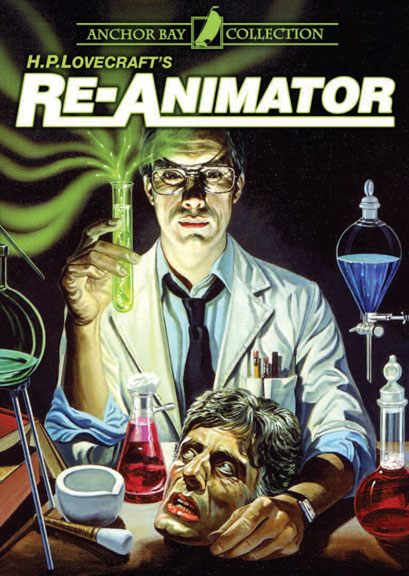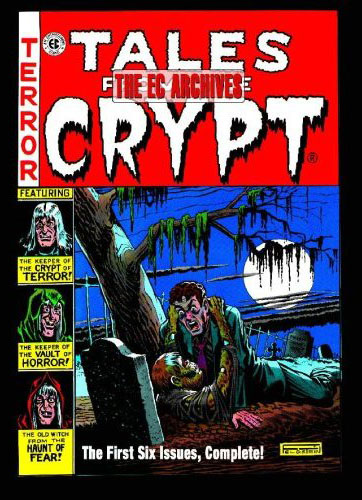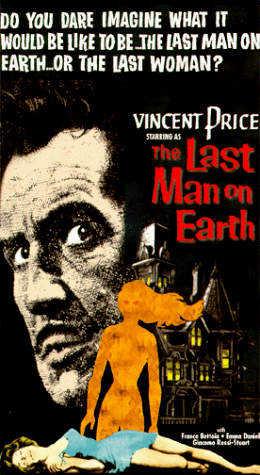What is a zombie? How does an outbreak start? How do you kill one? These are all debatable questions in the undead enthusiast culture. Some zombie fans are devoted to the rules created by George A. Romero: The Grandfather of all Zombies; others believe in a new generation of faster, sometimes even smarter zombies.
I enjoy seeing how different systems of zombie rules in action will affect a story, which means I'm open to each writer's 'twist' on the living dead. That being said, there's still a certain kind of ghoul that I love best; that I feel most comfortable with. I feel like a good way to get to know me as I kick off this blog, is to get to know my zombie.
First I will go over some common rules, and then I will build my very own zombie from the lists:
Initial Creation
What caused the first zombie?
Radioactive Contamination
When will city planners learn to keep the nuclear power plant away from the cemetery?! I suppose this could be called the classic answer, seeing as in Night of the Living Dead the only hint of a reason we get is an emergency broadcaster stating that one scientist believes radioactive contamination from an exploded space probe to be the cause. The real life mutations caused by radiation have made this an easy answer for any bizarre concepts in science fiction. This idea can also be done with biological warfare, which can create a scarily real vision while also commenting on the state of humanity.
Virus
This answer involves the development of a new virus spreading amongst humans, eventually leading to their death; and their rebirth. Sometimes it begins with other animals like rats (people are always so quick to blame rats for infection) biting humans, and sometimes it just develops directly in humans; often an evolution of an already existent virus. And then there's the more sinister manmade virus. Whichever route chosen, the virus is another answer that can be done with startling realism.
Magic
A less common approach, magic generally involves a human summoning the first zombies from corpses. This answer is more likely to be seen in a medieval fantasy world, where sorcerers and warlocks abound. I would also put a voodoo curse by a witchdoctor in this category, as it is considered black magic.
Religion
Zombies could also be seen as a plague made by God, sent to punish humanity, or a Satanic occurrence, perhaps taking place on Hallowe'en. This is a much deeper explanation. The first three answers often have no real bearing on the story, they are simply just answers. When religion is chosen as the answer, it is usually part of a stronger connection as the story will usually reflect religious concepts.
Unexplainable
An extremely common route to choose is not choosing an answer at all. Many works of zombie fiction never even hint at a possible reason why the outbreak started; and the mystery can work quite well.
Movement
How fast are they and how do they move?
Subhuman
If you can't outrun one of these zombies, well, maybe you should let Darwinism run its course. These are your classic 'Romero Zombies'; shambling about at turtle like speeds. You could quite literally walk away from confrontation with these guys. The reason generally being their low brain functionality creating jerky movements. The body awkwardly throws its parts around, creating a very slow trek forward. Climbing would be nearly impossible for these zombies as it takes too much coordination, and jumping is completely out of the question.
Human
Another idea is that zombies can move exactly as fast as their human counterpart; sometimes even being able to run if the writer gives them enough brain power. So if a healthy human is bitten on the arm, the new zombie they become would have full use of the human’s healthy legs. However, these zombies would get slower over time, as their bodies deteriorate. One interesting aspect of this type of undead movement is that in some cases, the zombie would actually move more efficiently than a human in the same condition. This would not be due to superhuman capabilities in their muscles, but rather due to their lack of pain. If the rule is a zombie can't feel pain, then a horribly injured zombie should be able to move quicker than it's horribly injured human counterpart. Again, these zombies could climb or jump as well as they could as a human.
Superhuman
This idea of the undead involves them sprinting, climbing up walls and sometimes even on ceilings like spiders, and jumping greater distances than they could have as a human. These kinds of rules (or breaking of rules) are far less common. Superhuman zombies generally live only in the realm of video games; where hordes of granny like ghouls can become boring.
Vocalization
Can they talk?
Mute
These would be undead who make no noise from their vocal chords. This is a very practical approach to how zombies who only exist to eat human flesh would behave. Since they have no pack mentality, and no brain capacity to understand the concept of intimidating their prey, they would have no reason to make any sort of noise.
Moaning
This is the most common form of vocalization in zombie fiction. The moaning of the walking dead is commonly explained as the little bit of brain functionality trying to create something like speech. In the book The Zombie Survival Guide by Max Brooks, he states that zombies moan louder when they find prey to signal other zombies. This of course means that Max Brooks' zombies do have some kind of pack mentality.
Growling
Lately, zombies have been becoming more and more animalistic in their vocalizations. New films have depicted zombies growling and screaming at their prey. This also presents an interesting take on the moaning zombie. Over time, the vocal chords of the undead would deteriorate, causing screaming to sound like nothing more than moaning.
"Brains"
These are zombies who moan the word 'brains' over and over again. Introduced in the film 'The Return of the Living Dead', this type of speech obviously only applies to the zombie type that eats specifically brains, as opposed to human flesh in general. This type of zombie may be the most parodied in pop culture due to its slight corniness.
Talking
Full out talking zombies are rarely ever used. Generally, it defeats the main concepts of what a zombie is. However, the comic series 'Marvel Zombies' in which a zombie outbreak spread across the Marvel Universe, focused it's point of view on the zombified super heroes. The dialogue worked great in the series and proved how far you can take zombies in pop culture.
Eating Habits
What do they eat?
Flesh
These guys will eat any form of meat they can find, alive or dead... but not undead. A common explanation as to why they won't eat each other is a natural instinct.
Living Flesh
These zombies are a little pickier, they'll eat anything from your neighbour to your dog; as long as it's warm live flesh. When the meat goes dead and cold, these zombies will move on, which provides a better explanation as to why they won't eat each other.
Living Human Flesh
The zombie your dog is safe around (sadly there is no safe zombie for your neighbour; that is unless he is one of course). These ghouls have acquired a taste for human flesh and human flesh only; to make them slightly more disturbing.
Human Brains
Finally we have the brain eating zombies created in 'Return of the Living Dead'. The pickiest zombie of all, they only want to devour your brains.
Intelligence
How smart are they?
Mindless
Outsmarting these zombies is like outsmarting a doorknob (of all inanimate objects, why do we always pick on the doorknob?). They are capable of walking, looking for food, putting food in their mouths, and chewing and swallowing food. That's all. That's literally everything they are capable of. These zombies are better defined by what they cannot do, then what they can. They cannot think, they cannot react, they cannot learn. They can't use tools… not even a rock… in any way. They are oblivious to everything but you: their food.
Simple Task Performers
These zombies are a little smarter, but far from Nobel Prize winners. They may be able to complete simple tasks such as opening doors, or moving objects out of their way. They can even pick up weapons to swing at their adversaries or break open windows. A common concept for this type of zombie is for them to have some semblance of a memory. They will sometimes return to the home they lived in, or repeat tasks they performed in life such as pushing a shopping cart or mowing a lawn.
Learners
Far less common, these zombies can increase their knowledge to become better predators. They can mimic humans to get the results they see, such as learning to fire a gun. These zombies can sometimes even cooperate with each other. In George A. Romero's film 'Land of the Dead', an intelligent zombie rises up to lead the rest of the undead horde.
Death
How do you kill one?
Destroy the Brain
There are really only two principle ideas on the subject of killing a zombie. The first is that the brain must be destroyed to destroy the zombie. With this idea, even a zombie's decapitated head will live and continue to try to consume human flesh.
Destroy the Brain or Remove the Head
The second answer doesn't argue that destroying the brain won't work; it simply adds that removing the head will work just as well.
My Perfect Zombie
For any zombies who fall into the learner intelligence category and may have learnt to read, this is not a dating classified ad. I have a completely living girlfriend, sorry.
Initial Creation
This one isn't too important to me. I like the realism of a virus and the fact that it makes sense a virus would be spread through infectious zombie bites.
Movement
Nice and slow. They are the walking dead, right? While the running zombie is terrifying, I think it's sad that a walking corpse isn't a big enough deal anymore. Yes you can outrun the subhuman speed zombie, but I like it when a zombie's strength is in numbers. Your superior speed won't get you out of the middle of a zombie horde.
Vocalization
A moaning horde of zombies is a chilling sound for sure. Although, with my preference for the simplest zombie possible, who does nothing that doesn't directly relate to eating flesh; it would make sense for zombies to make no sound at all.
Eating Habits
I'll go with living human flesh only on this one. It makes it a more personal battle when you see a zombie shamble past your cat or dog with its eyes set on you. I think it makes for an even more panic and terror inducing story. Plus, it can create a nice subplot about the downfall of humanity for all our wrong doings. The innocent bunnies and deer will live on.
Intelligence
To be blunt, I like them dumb as rocks (or doorknobs). It annoys me a little when zombies use tools. And I know, even in Night of the Living Dead they do. But I think this is too much use of the brain, which leads to personality, which I don't think zombies are about. Hell, I even found myself annoyed watching the remake of Dawn of the Dead when the second zombie you see violently throws a table out of his way to get to his wife. My preferred zombie would stumble over the table.
Death
Destroy the brain. It just doesn't make sense to me that cutting off the head would kill the zombie. In most works of zombie fiction, a zombie's brain is reactivated, and begins sending its own signals to the body to make it move. Without a connection to the head, the body would be lifeless, sure; but why would the head cease to function? I think a zombie head should be just as bitey with or without the body.
As you can see, I have a fairly classic preference for zombies. But I love the talking zombies of Marvel and even the living zombies of 28 Days Later. This is just what I think the standard archetype for a zombie should be.
Feel free to let me know how you like your zombies!




